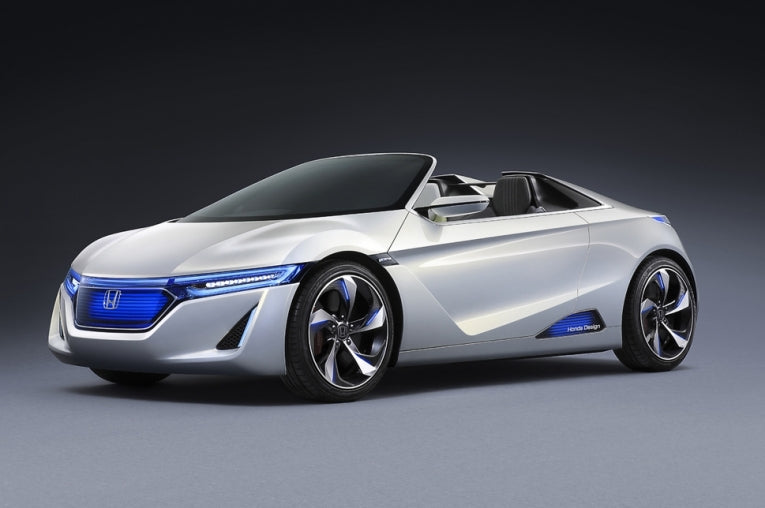Take Tokyo today. It is full of (necessarily) smallelectric cars, but the worldwide thirst for automobilia japonica is less predictable. It's up to Honda, Toyota, Nissan, Mazda and the rest to keep up with demand for various combinations of environmental technology for both city and rural needs Honda's latest solution is a group of advances called EDT (Earth Dreams Technology), using the traditional internal combustion stand-bys of diesel and petrol. The tried and tested electric back-up engine is added on, so we can assume high reliability. Totally ecological, they have an aim of reducing CO2 emissions by 30% between 2000 and 2020.
The key features of "Earth Dreams Technology" in the new Honda bi fuel cars at the Tokyo Motor Show next week (3rd December till 11th December), are :
1. the gasoline engine which realizes top level driving performance and fuel efficiency.
2. the compact diesel engine which realizes the world's lightest body*1, top-of-class*1 acceleration performance and fuel efficiency.
3. CVT (continuously variable transmission) which combines at a high level the fun of driving and fuel efficiency.
4. A two-motor hybrid system which realizes top-of-industry efficiency
5. A high-efficiency, high output electric SH-AWD hybrid system which combines superior driving and environmental performance.
6. A compact, high efficiency electric power-train for EVs (I don't know why this can't simply be left as "electric vehicles".)
The small sporty EV-STER shown above is a typical product for the home Japanese market. Implied by the name, it is totally electric. Its lithium ion battery can get it from 0-60 in 5 seconds (but unfortunately, that's km, not miles!) needed for such a car in Japan is a station such as this one planned for a district just north of Tokyo.

Solar Hydrogen Station; Credit: © Honda Motor Co., Ltd.
Next of course comes, the fuel-cell car, the hydrogen car that has no worries about its emissions of pure water. But which Tokyo motor show will preview the first world-wide car of that ilk? Honda itself recently showcased the FCX Clarity, a hydrogen fuel cell demonstration vehicle in 2008.The costs were estimated to be $300,000 per vehicle. I'll leave it to you to ponder.










